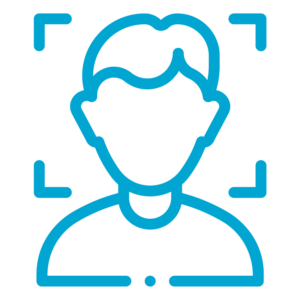Milestones on a Learning Journey
The National Survivor Study is designed to produce two significant bodies of research. One is the more obvious: What we learn from survivors about the specific topics the study is examining. The second is equally significant. We are learning from the unique design of this study, which aims to include survivors in every step of the process, from what questions get asked in the formal study to who facilitates focus groups to dig deeper on certain issues. We are learning what works and what doesn’t toward the end goal of meaningfully including survivors in this study as not just research subjects, but participants in the research process and the decisions about what to do with what we learn.

“To really do community-based, participatory research well, it takes a lot of time, and you don’t always know exactly where you’re going or what it’s going to look like. To be responsive, you have to listen seriously to the people you are prioritizing as experts, which requires you to make changes you didn’t envision. It’s both the right thing and the smartest thing to do for our work.”
– Lara Powers, Senior Advisor, Survivor Engagement, Polaris
Learnings from Expert Survivors
There’s help when you first get out but there’s no long-term support.
“It’s almost like you graduate, you’re out in the world and you’re on your own. … The help only goes for a year. After a year, you’re basically on your own. There is no follow-up. I understand maybe there’s a lot other survivors that need help – but I feel there is no long-term [support].”
– Human trafficking survivor
There are still incredible barriers to even emergency services for some groups.
“The first challenge out of my trafficking situation was shelter, and especially for me because I am a transgender, I was put into a male shelter where I wasn’t feeling comfortable. I ended up leaving the shelter and going into homelessness. You’re out from one situation but you’re put in another situation which is bad in a different way.”
– Human trafficking survivor
There a few very specific short-term needs that don’t get a lot of attention.
“It seems really simple but make sure they have access to their Social Security number. Their birth certificate. A government ID. When I got out, I didn’t know what a Social Security number was.”
– Human trafficking survivor
Initial Learnings from the Project Team

- Authentic advice comes from people with authentic experience. If you want to hear it, you have to meet them where they are and be truly – not performatively – flexible.
- We thought we knew how to protect survivors’ privacy. They taught us to let them make their own decisions about privacy.

- There is no shortcut to outreach and no one knows how to reach everyone. Go wide. Go big. Go deep. Build in time to build trust.
- Don’t write a script and ask for survivors to approve it. As survivors to write it – or to make what you have written better.

- Build trust into informed consent. It should not be a perfunctory process. This has meaning and allows survivors to own their participation.
- Survivors felt empowered to control their own participation in the NSS.

- Let survivors facilitate focus groups with other survivors. Let them share their truths.
- Inviting survivors to serve as research leaders not only enhanced trust and comfort in focus group settings but also led to better data collection.
Unexpected Outcomes
Polaris not only learned these important process lessons, but we also realized that the process itself has already generated initial impact for survivors, our team, and our partners.
Additional Information
Meaningful Engagement in Research
Preliminary findings from formative group and individual discussions on the topic of meaningful research engagement.
Service Access Challenges for Survivors
Preliminary findings from formative group and individual discussions on the topic of challenges that survivors encounter in trying to access services.
Milestones on a Learning Journey
Reflections and lessons learned from the NSS project team on trying to implement a community engaged, survivor centered study.